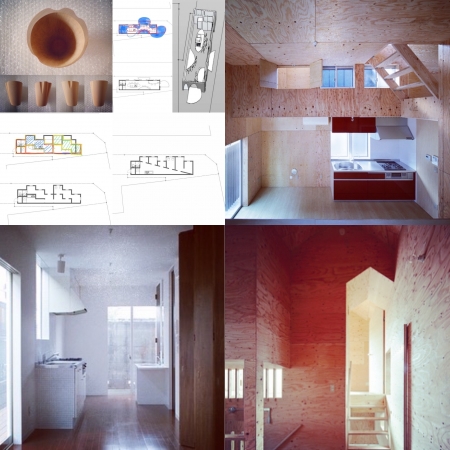固有の感性
人は空間に入った時にまず何をするか、初めて入った時を想定してみる。繰り返し入ったことがある空間では学習して同じような行動パターンをするかもしれないが、それも初めて入った時の行動パターンが元になる。
空間に入って感動することを想像してみる。初めはあらかじめ空間の様子がわからないから、いわばサプライズ効果で感動するかもしれないが、二度三度と入るたびに慣れてしまい感動しなくなるという話を聴くと、本当にいい空間であれば何度でも感動すると思うので、感動しない場合は人の感度の問題か、そもそも本当にいい空間かとなる。
人は初めての空間では身の置き所、すなわち、居場所を探す。まずどこに居るか、そこが安全地帯となり、それが定まってから様々な機能や用途が目に入る。
感動における人の感度は、初めての空間での居場所探しにも役立ち、共通のアンテナとして使え、それは空間を認識する際のその人固有の感性である。
"Unique sensibility"
Imagine what a person would do when he first entered the space, the first time he entered. In a space where you have entered repeatedly, you may learn and follow similar behavior patterns, but that is also based on the behavior patterns when you first enter.
Imagine entering a space and being impressed. At first, you don't know the state of the space in advance, so you may be impressed by the surprise effect, but when you hear the story that you get used to it every time you enter it and you will not be impressed, you can do it as many times as you like if it is a really good space. I think I'm impressed, so if I'm not impressed, it's a matter of human sensitivity, or it's a really good space in the first place.
In the first space, a person searches for a place to put himself, that is, a place to stay. First of all, where you are, it becomes a safe zone, and after it is decided, you can see various functions and uses.
The sensitivity of a person in impression is also useful for finding a place in the space for the first time, and can be used as a common antenna, which is the person's unique sensibility when recognizing the space.


